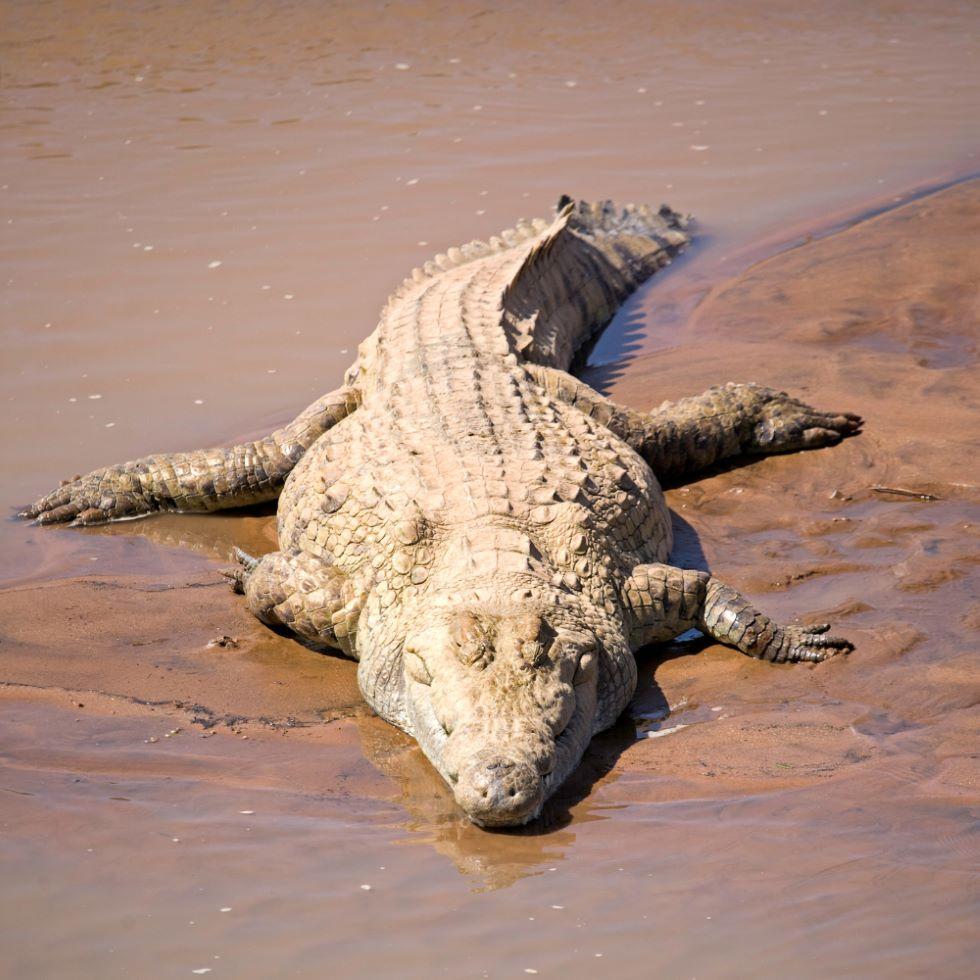The sun dips below the horizon, bathing the African landscape in a warm, golden light. As we drift silently through the marshes, the anticipation is almost tangible. Our eyes scan the dark waters, alert for any sign of movement. Suddenly, a pair of unblinking eyes pierces the surface. A crocodile. This is the thrilling moment we have been waiting for. Welcome to the heart-pounding adventure of crocodile hunting in Africa.
[DYNAMIC-BLOGTABLEOFCONTENT]
Background on Crocodile Hunting
History
Crocodile hunts in Africa are a tradition steeped in history. For centuries, indigenous tribes have hunted these formidable creatures for their meat, skin, and as a rite of passage. The early explorers and settlers in Africa also engaged in crocodile hunting, often out of necessity, to protect livestock and communities from these predators.
Legal Aspects
Crocodile hunting today is governed by rigorous regulations to safeguard these ancient creatures. Different African countries implement their own rules and permit systems. In South Africa, for example, hunters are required to obtain special permits and adhere to annual quotas that restrict the number of crocodiles taken. These measures are essential for maintaining a balance between the excitement of the hunt and the need to conserve crocodile populations for the future.
Cultural Significance
Across many African cultures, the crocodile is viewed as a powerful emblem of resilience and might. Engaging in a crocodile hunt often involves more than just physical skill—it carries profound cultural and spiritual meaning. In some communities, successfully hunting a crocodile is a significant rite of passage, marking a young man’s journey into adulthood. The rich narratives and folklore surrounding these hunts are handed down through generations, reflecting the deep-seated traditions and values that define the cultural heritage of the hunt.
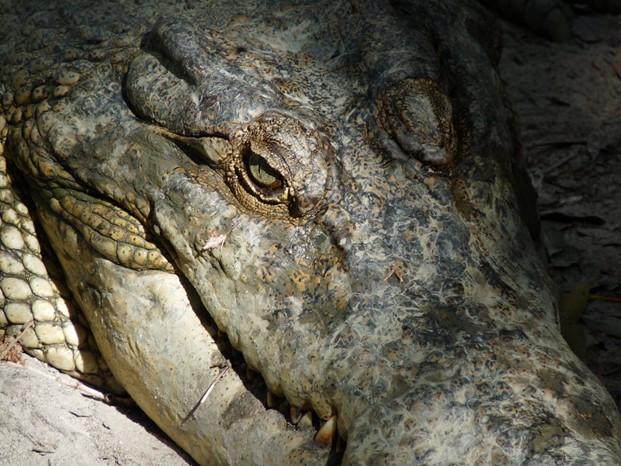
Preparing for the Hunt
Selecting a Location
- Africa boasts some of the premier crocodile hunting destinations globally, with South Africa’s Limpopo and Free State provinces standing out. The Limpopo River, known for its dense crocodile population, presents hunters with both a thrilling and demanding challenge.
- Meanwhile, the Free State’s varied landscapes and rich wildlife offer a distinct yet equally exciting hunting experience. Each region provides its own set of challenges and rewards, making them top choices for adventurous hunters.
Licenses and Permits
- Before you set off on a hunting trip in Africa, it is vital to navigate the licensing and permit requirements.
- Each region and country has its own procedures, so you will need to connect with local wildlife officials to get the proper approvals.
- Taking care of these details ensures you stay within legal boundaries and contribute positively to conservation efforts.
Choosing the Right Gear
The success of a crocodile hunting safari largely depends on the equipment used. A high-caliber rifle is essential, as crocodiles have tough hides and strong bones. Recommended calibers include .375 H&H Magnum or larger. In addition to firearms, hunters should carry a sturdy knife, binoculars, a good-quality spotlight for night hunting, and appropriate clothing for the harsh African environment.
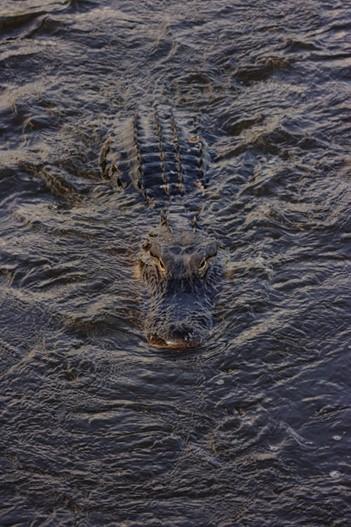
The Hunt Itself
Planning the Trip
Planning an African hunting trip requires careful consideration of numerous factors, including the best time of year, the duration of the hunt, and travel logistics. For instance, the dry season, typically from May to October, is ideal for crocodile hunting. During this time, water levels are lower, making it easier to spot these elusive creatures. Additionally, arranging accommodations close to the hunting area and ensuring you have reliable transportation to navigate the often remote and rugged terrain is crucial. This preparation ensures a smoother, more enjoyable dangerous game hunting experience.
Tracking and Stalking
Crocodile hunts are as much about patience and strategy as they are about skill. Tracking these elusive creatures requires a deep understanding of their behavior and habitat. As ambush predators, crocodiles often lie in wait near water sources, blending seamlessly into their surroundings. Hunters must use this knowledge to their advantage, carefully scanning riverbanks and shallow waters for signs of activity. Once a target is spotted, the challenge begins – stalking the crocodile without being detected. This requires a keen eye, steady nerves, and the ability to move silently through the environment.
Safety Precautions
Embarking on a crocodile hunt in Africa is an adventure filled with inherent risks. These formidable apex predators possess remarkable speed and strength, able to surge from the water with astonishing force. As a result, hunters need to be exceptionally cautious, constantly vigilant of their surroundings, and prepared to act swiftly. Collaborating with seasoned guides who have in-depth knowledge of crocodile behavior, and the local terrain is crucial. These experts not only enhance safety but also enrich the hunting experience, offering valuable guidance and ensuring a memorable and secure expedition.
The Experience
First-Hand Accounts
Every crocodile hunting safari is unique, and filled with moments of tension, excitement, and sometimes sheer terror. Various hunters’ accounts underscores the intense emotions and physical challenges that come with hunting these formidable creatures.
Challenges
Crocodile hunts are not for the faint-hearted. The physical demands are immense, from navigating dense reeds and swamps to enduring the sweltering African heat. The terrain is often treacherous, with hidden dangers lurking beneath the water’s surface. Moreover, crocodiles are highly intelligent and challenging to outwit. Patience, persistence, and sharp instincts are essential traits for a successful hunt.
Success and Failure
Success in crocodile hunting often hinges on meticulous planning, skill, and a touch of luck. However, encountering failure is also part of the journey. Despite the best efforts, there will be times when the crocodile eludes capture. These frustrating moments are also valuable learning experiences, offering hunters the chance to refine their strategies and improve their approach, especially when it comes to perfecting shot placement.
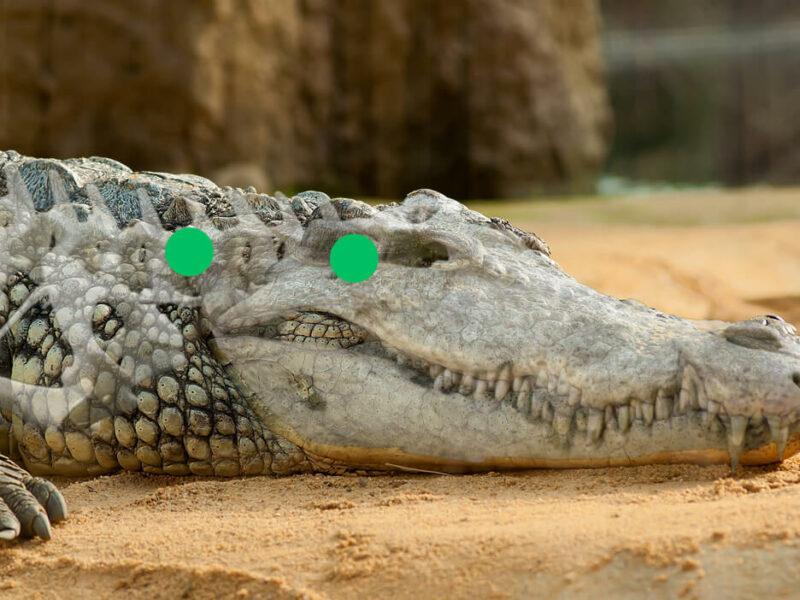
Post-Hunt Activities
Processing the Crocodile
After a successful hunt, the work shifts to handling and processing the crocodile. The first step involves skinning, which requires precision to keep the hide in good condition for potential use. The meat is then processed, often being shared with local communities or used in various dishes. Ensuring that every part of the crocodile is handled properly not only honors the hunt but also makes the most of the animal, minimizing waste and respecting its contribution.
Trophies and Souvenirs
- After a crocodile hunt, there are several unique trophies and souvenirs you can choose from to remember your experience. One memorable option is the crocodile’s skull. After careful cleaning and preservation, it becomes a dramatic piece that showcases the crocodile’s formidable teeth and powerful jaws.
- Another great souvenir is the crocodile’s hide. Once tanned, it can be made into various items like belts, wallets, or even bespoke shoes. Each item has its own distinct pattern and texture, offering a practical and stylish reminder of your adventure.
- For those who want a more striking display, a full mount of the crocodile is an impressive choice. This option involves preserving the entire animal and requires professional taxidermy, but it’s a fantastic way to display the grandeur of your catch.
- If you’re looking for something smaller and easier to handle, consider replica teeth or claws. These are crafted from quality materials to mimic the real thing and make excellent display pieces or gifts. They’re a compact and often more affordable way to remember your hunt.
- Each of these trophies and souvenirs not only commemorates your hunt but also symbolizes the respect you have for the wildlife and the adventure you’ve experienced.
Celebrating the Hunt
Celebrating a successful hunt is a key part of the experience. Hunters often come together around a campfire, sharing stories and recounting the excitement of the chase. These times of camaraderie and reflection are treasured, strengthening the bonds formed during the adventure. For many, the celebration extends to a traditional feast where the crocodile meat is prepared and savored, adding a culinary touch to the memorable occasion.
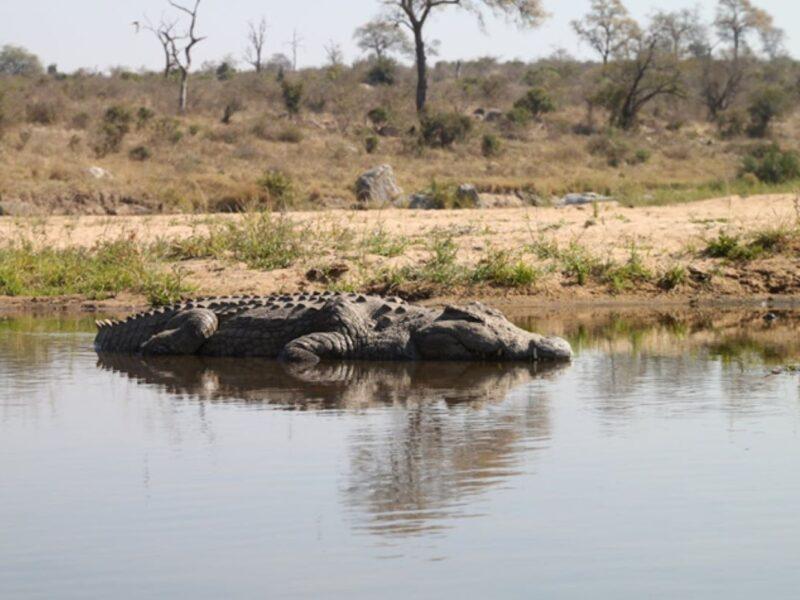
Conservation and Ethical Considerations
Impact on Wildlife
When carried out with care, crocodile hunting can contribute positively to wildlife conservation. By regulating crocodile populations, controlled hunting helps mitigate potential conflicts between humans and wildlife. The funds raised through hunting permits are frequently directed toward conservation efforts, including anti-poaching programs and habitat protection. This approach not only helps maintain ecological balance but also supports broader conservation initiatives.
Sustainable Hunting Practices
Ensuring the survival of crocodile populations requires a commitment to sustainable hunting practices. This involves following set quotas, observing hunting seasons, and refraining from targeting young or reproductive crocodiles. Hunters should seek out experienced guides and organizations that emphasize ethical and conservation-focused practices, making sure each shot is executed with precision and respect…
Community Involvement
Local communities are vital to the success of conservation efforts. By including them in hunting activities and sharing benefits like meat and revenue, a sense of ownership and responsibility towards wildlife is nurtured. Community-based conservation initiatives have shown significant success across various regions in Africa, underscoring the importance of local involvement in promoting sustainable hunting practices.
Recap
Crocodile hunting in Africa is an exhilarating and demanding adventure that calls for skill, patience, and a deep respect for the environment. The journey encompasses not only the rich historical and cultural context but also the meticulous preparation and the intense hunt itself. Each element of the experience is infused with excitement and a profound respect for these ancient and formidable reptiles.
Personal Reflection
When considering the full experience, it is clear that crocodile hunts are about more than just pursuing a trophy. They provide a deep connection with nature, allowing hunters to engage with the fundamental relationship between predator and prey. This tradition highlights the responsibility involved in maintaining ecological balance and respecting the natural world.
If you are considering a crocodile hunting safari, it is important to do so with respect and responsibility. Make sure to conduct all activities within legal and ethical boundaries, actively supporting conservation initiatives and local communities. By following these principles, you contribute to preserving the tradition of crocodile hunting while ensuring a sustainable future for these impressive animals.
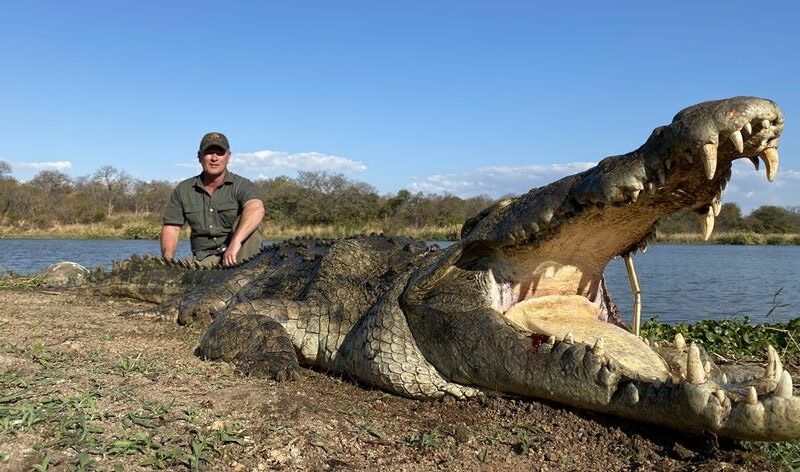
The Best Places in Africa to Hunt Crocodiles
Crocodile hunting stands out as one of the most exhilarating and demanding activities for hunting enthusiasts. Africa, with its rich diversity of ecosystems and wildlife, provides some of the premier locations for this adventurous pursuit. In this exploration, we will highlight the top destinations in Africa for crocodile hunts, supported by detailed graphs and statistics to offer a thorough overview.
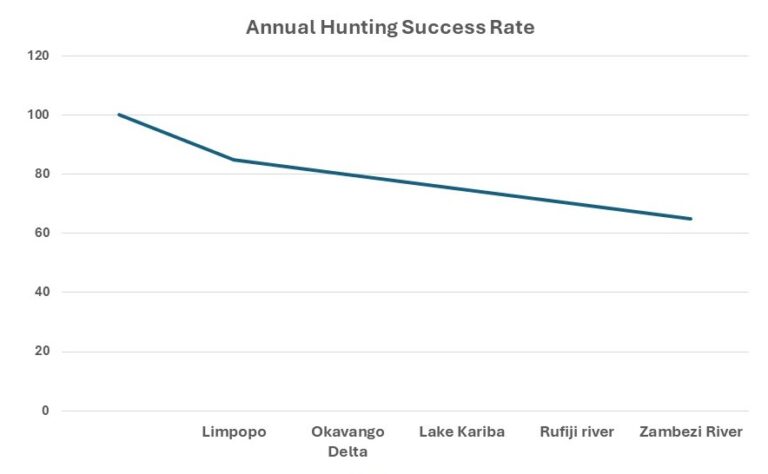
Limpopo Province, South Africa
Why Limpopo?
Limpopo Province is famous for its dense crocodile population, particularly along the expansive Limpopo River. The river’s network of tributaries creates a perfect habitat for these reptiles, making it a premier spot for crocodile hunting.
Statistics and Graphs:
- Crocodile Population Density in Limpopo: The graph illustrates that Limpopo boasts the highest crocodile density among leading hunting locations, with an estimated 1,500 crocodiles.
- Annual Hunting Success Rates: With an impressive success rate of 85%, Limpopo stands out as a top destination for successful crocodile hunts.
Okavango Delta, Botswana
Why the Okavango Delta?
The Okavango Delta, a unique inland delta, is renowned for its rich biodiversity and significant crocodile population. The delta’s waterways and abundant prey provide an ideal setting for large crocodiles.
Statistics and Graphs:
- Crocodile Population Density in Okavango Delta: Ranking second, the Okavango Delta has around 1,300 crocodiles.
- Annual Hunting Success Rates: The success rate here is 80%, reflecting the high chances of a successful hunt.
Lake Kariba, Zimbabwe
Why Lake Kariba?
Lake Kariba, one of the world’s largest artificial lakes, supports a robust crocodile population. The lake’s expansive size and varied shoreline offer excellent hunting opportunities.
Statistics and Graphs:
- Crocodile Population Density in Lake Kariba: The lake hosts approximately 1,200 crocodiles.
- Annual Hunting Success Rates: Hunters enjoy a success rate of 75% in Lake Kariba, highlighting its rich hunting potential.
Rufiji River, Tanzania
Why the Rufiji River?
Flowing through the Selous Game Reserve, the Rufiji River is home to a substantial number of crocodiles. Its remote and pristine environment offers an authentic wilderness hunting experience.
Statistics and Graphs:
- Crocodile Population Density in Rufiji River: The river has about 1,100 crocodiles.
- Annual Hunting Success Rates: With a success rate of 70%, the Rufiji River provides a challenging yet rewarding hunting experience.
Zambezi River, Zambia
Why Zambezi River?
The Zambezi River, Africa’s fourth-longest, teems with wildlife, including a considerable number of crocodiles. Its diverse habitats—from calm stretches to rapid-filled gorges—offer varied hunting experiences.
Statistics and Graphs:
- Crocodile Population Density in Zambezi River: The river has an estimated 1,000 crocodiles.
- Annual Hunting Success Rates: The success rate along the Zambezi is 65%, reflecting the challenging conditions.
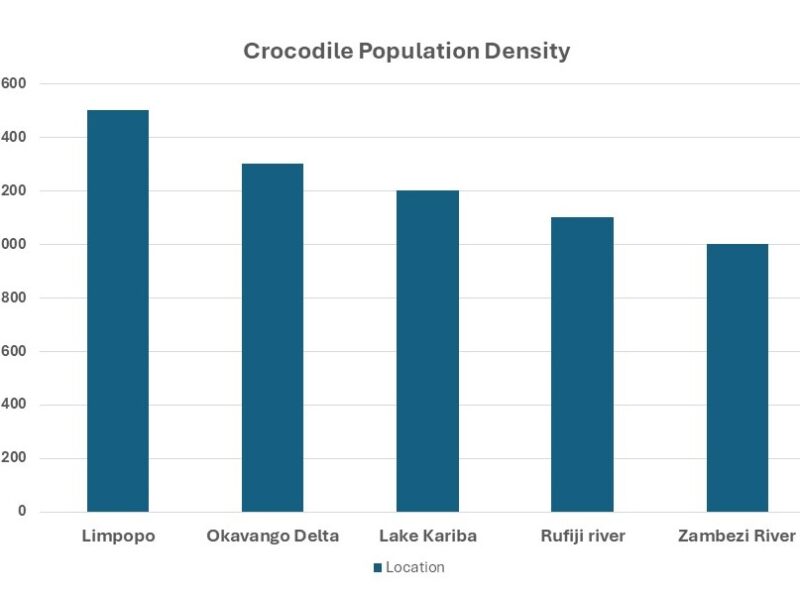
In Closing
- Crocodile hunting in Africa presents a unique blend of thrill and challenge, highlighting the adventure of pursuing a formidable predator. Each top location—Limpopo Province, Okavango Delta, Lake Kariba, Rufiji River, and Zambezi River—offers distinct experiences and rich opportunities. These destinations are supported by strong statistics and are governed by regulated practices to ensure sustainable hunting.
- Whether you are embarking on an African hunting trip or a specialized safari, these locations provide the perfect backdrop for unforgettable crocodile hunts. Expert guidance, prime locations, and the stunning African landscape ensure each hunt is both exhilarating and mindful of conservation efforts.
Author: R. Du Toit
